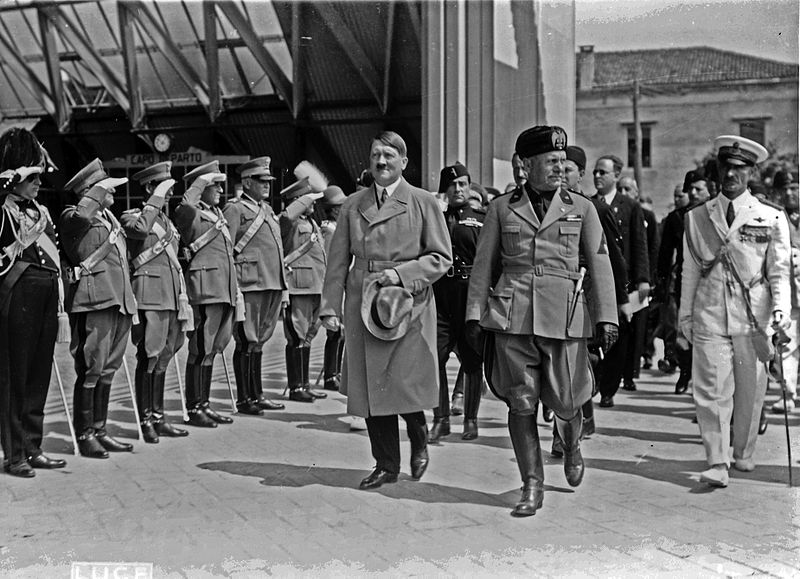
Seth Udinski, FISM News
[elfsight_social_share_buttons id=”1″]
On July 29, 1921, exactly 100 years ago, Adolf Hitler took over as the leader of the National Socialist German Workers (Nazi) Party. Two decades later, he would attempt to take over the world in his establishment of a third German Reich, before the Allied forces stopped him in World War II.
Hitler’s rise to power was largely unnoticed in a nation that was still bleeding from its wounds suffered in a drastic defeat in World War I. Hitler himself was a war hero for Germany during the Great War, but like many in his country, he found himself disillusioned after the defeat. In 1919 he joined the tiny German Workers Party, the precursor of the Nazis. The party gradually grew in prominence during the 1920s, a period in which Hitler found himself in jail for almost a year after a conviction of treason. After his release, he assumed leadership of the Nazis. With Hitler in charge, the party grew in strength on the notion that the Aryan race was supreme.
Finally, at the end of the 1920s, Germany fell into the Great Depression. In a country that was still reeling from a devastating loss and now in economic turmoil, this provided the perfect opportunity for someone like Hitler to commandeer the German government. In 1933, Hitler became chancellor of Germany and quickly took over as an absolute monarch. In 1939, he commissioned the invasion of Poland, and World War II began.
Thankfully, this utterly wicked man was stopped in his attempt at world takeover by the courageous men who fought for the Allied Powers. Adolf Hitler committed suicide in his bunker headquarters under the city of Berlin on April 30, 1945, less than two weeks before Germany surrendered to the Allies.
